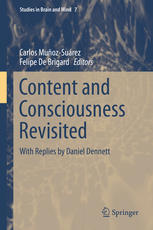

Most ebook files are in PDF format, so you can easily read them using various software such as Foxit Reader or directly on the Google Chrome browser.
Some ebook files are released by publishers in other formats such as .awz, .mobi, .epub, .fb2, etc. You may need to install specific software to read these formats on mobile/PC, such as Calibre.
Please read the tutorial at this link: https://ebookbell.com/faq
We offer FREE conversion to the popular formats you request; however, this may take some time. Therefore, right after payment, please email us, and we will try to provide the service as quickly as possible.
For some exceptional file formats or broken links (if any), please refrain from opening any disputes. Instead, email us first, and we will try to assist within a maximum of 6 hours.
EbookBell Team

0.0
0 reviewsWhat are the grounds for the distinction between the mental and the physical? What is it the relation between ascribing mental states to an organism and understanding its behavior? Are animals and complex systems vehicles of inner evolutionary environments? Is there a difference between personal and sub-personal level processes in the brain? Answers to these and other questions were developed in Daniel Dennett’s first book, Content and Consciousness (1969), where he sketched a unified theoretical framework for views that are now considered foundational in cognitive science and philosophy of mind.
Content and Consciousness Revisited is devoted to reconsider the ideas and ideals introduced in Dennett’s seminal book, by covering its fundamental concepts, hypotheses and approaches and taking into account the findings and progress which have taken place during more than four decades. This book includes original and critical contributions about the relations between science and philosophy, the personal/sub-personal level distinction, intelligence, learning, intentionality, rationality, propositional attitudes, among other issues of scientific and philosophical interest. Each chapter embraces an updated approach to several disciplines, like cognitive science, cognitive psychology, philosophy of mind and cognitive psychiatry.